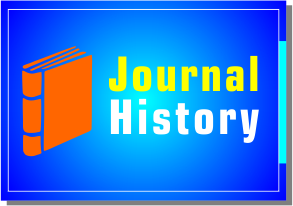Evaluasi Pemajakan Atas Nilai Tambah dalam Biaya Angkutan Laut dan Udara (Freight) Kargo pada Perusahaan Freight Forwarding di Indonesia
DOI:
https://doi.org/10.31334/trans.v9i2.32Keywords:
Freight, Freight Difference, VAT, State RevenueAbstract
Enactment of the application of the tax base in the form of Other Values for Freight Charges has become a smart "breakthrough" of the basic principles and tax characteristics contained in the VAT and VAT mechanism, and this policy is considered "successful" raised a complicated issue contained in the aspect fiscal (theoretical concept to aiming the difference in freight) when in fact there is no urgency or complicated issue from the fiscal aspect that requires to "other value" the freight charges for the calculation/imposition of VAT on freight charges in the delivery transaction of Freight Forwarding Services. Although taxpayers make a "breakthrough" of taxation on freight that has been considered "untaxable" beforehand, but on the other side, it is unfortunately the concept of taxation based on Regulation Finance Minister no. 38 / PMK.011 / 2013 on amendment to Regulation of the Minister of Finance no. 75 / PMK.03 / 2010 concerning other Values may cause losses for state revenues, because the VAT mechanism is disrupted due to theoretical concept of the tax base has not effectively being aiming. From the point of view of revenue productivity principle, the concept raises a new problem that really does not need to happen because basically the realization of the transactions of freight differences that can be "captured" from commercial bookkeeping held based on the applicable Financial Accounting Standard is an indication of the creation of an added value that become the object of VAT imposition. The application of the tax base in the form of Other Values for Freight Charges has "damaged" the value of the basic principles and tax characteristics contained in the VAT and VAT mechanism by means of to "other value" such freight charges for VAT calculation/imposition of VAT on freight charges in delivery transactions of Freight Forwarding Services (JPT / FF).
References
Asri Harahap, Abdul. 2004. Paradigma Baru Perpajakan Indonesia.Jakarta : Integrita Dinamika Press.
Edward F Steven. 1975. Shipping Practice, 9thedition : Pitman Publishing.
Hamonangan Simanjuntak,Timbul dan Imam Mukhlis. 2012. Dimensi Ekonomi Perpajakan Dalam Pembangunan Ekonomi.Depok :Raih Asa Sukses (Penebar Swadaya Group).
Ikatan Akuntan Indonesia. 2009.Standard Akuntansi Keuangan Per 1 Juli 2009. Jakarta: Salemba Empat.
Istopo. 1992. Unimoda dan Multimodal Transport, Angkutan Barang Terpadu Darat, Laut dan Udara. Jakarta.:Yayasan INFFA (Indonesia Freight Forwarder’s Foundation).
Kosasih, Engkos dan Hananto Soewedo. 2012. Manajemen Perusahaan Pelayaran. Jakarta:PT. Radjagrafindo Persada.
Mansury, R. 1994 & 1996.Panduan Konsep Utama Pajak Penghasilan Indonesia Jilid 1- III.Jakarta :PT. Bina Rena Pariwara.
Martono, H.K. dan Eka Budi Tjahyono.2011. Transportasi Di Perairan Berdasarkan Undang-Undang Nomor 17 Tahun 2008. Jakarta : Rajawali Pers.
Nurmantu, Safri. 2005. Pengantar Perpajakan, edisi 3 .Jakarta : Granit.
Pohan, Chairil Anwar. 2017. Pembahasan Komprehensif Perpajakan Indonesia, Teori dan Kasus.Edisi 2.Jakarta : Mitra Wacana Media.
Rosdiana Haula dan Edi Slamet Irianto. 2012. Pengantar Pajak. Jakarta : Rajawali Press.
Rosdiana Haula dan Edi Slamet Irianto.2012.Pengantar Ilmu Pajak, Kebijakan dan Implementasinya di Indonesia. Jakarta : Rajawali Press.
Sugiyono. 2010. Memahami Penelitian Kualitatif. Bandung : Penerbit Afabeta.
Suyono, R.P. 2005. Shipping, Pengangkutan Intermodal Ekspor Impor Melalui Laut. Edisi 4.Jakarta:Penerbit PPM
Downloads
Published
Issue
Section
License

This work is licensed under a Creative Commons Attribution-ShareAlike 4.0 International License
Please find the rights and licenses in Transparansi : Jurnal Ilmiah Ilmu Administrasi By submitting the article/manuscript of the article, the author(s) agree with this policy. No specific document sign-off is required.
- License
The commercial use of the article will be governed by the Creative Commons Attribution license as currently displayed on Creative Commons Attribution-ShareAlike 4.0 International License.
2. Author(s)' Warranties
The author warrants that the article is original, written by stated author(s), has not been published before, contains no unlawful statements, does not infringe the rights of others, is subject to copyright that is vested exclusively in the author and free of any third party rights, and that any necessary written permissions to quote from other sources have been obtained by the author(s).
3. User Rights
Transparansi : Jurnal Ilmiah Ilmu Administrasi spirit is to disseminate articles published are as free as possible. Under the Creative Commons license, Transparansi : Jurnal Ilmiah Ilmu Administrasi permits users to copy, distribute, display, and perform the work for non-commercial purposes only. Users will also need to attribute authors and Transparansi : Jurnal Ilmiah Ilmu Administrasi on distributing works in the journal and other media of publications.
4. Co-Authorship
If the article was jointly prepared by more than one author, any authors submitting the manuscript warrants that he/she has been authorized by all co-authors to be agreed on this copyright and license notice (agreement) on their behalf, and agrees to inform his/her co-authors of the terms of this policy. Transparansi : Jurnal Ilmiah Ilmu Administrasi will not be held liable for anything that may arise due to the author(s) internal dispute. Transparansi : Jurnal Ilmiah Ilmu Administrasi will only communicate with the corresponding author.
5. Miscellaneous
Transparansi : Jurnal Ilmiah Ilmu Administrasi will publish the article (or have it published) in the journal if the article’s editorial process is successfully completed. Transparansi : Jurnal Ilmiah Ilmu Administrasi editors may modify the article to a style of punctuation, spelling, capitalization, referencing and usage that deems appropriate. The author acknowledges that the article may be published so that it will be publicly accessible and such access will be free of charge for the readers as mentioned in point 3.
Every accepted manuscript should be accompanied by "Copyright Transfer Agreement"prior to the article publication.











